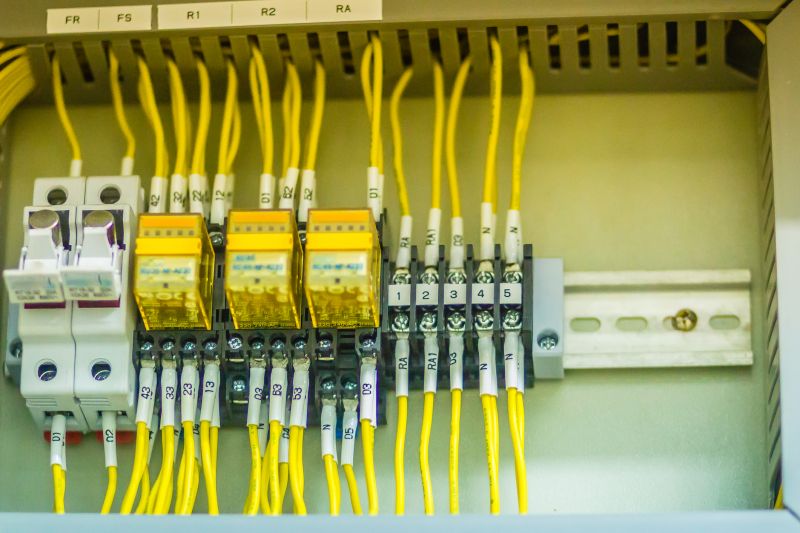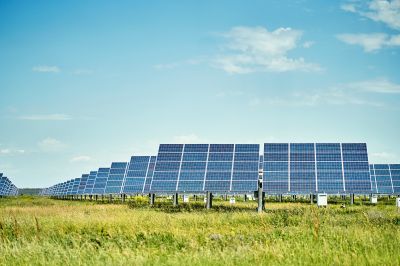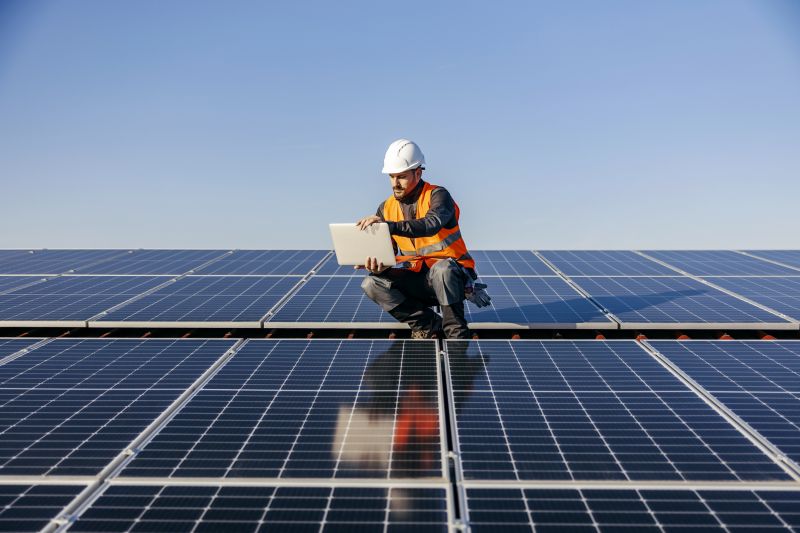Optimal Timing for Solar Panel Repairs

Optimal weather conditions with clear skies facilitate effective repairs and inspections.

Spring offers moderate temperatures and longer daylight hours, ideal for maintenance work.

Periods without rain or snow reduce delays and ensure safety during repair procedures.

Ways to make Solar Panels Repairs work in tight or awkward layouts.

Popular materials for Solar Panels Repairs and why they hold up over time.

Simple add-ons that improve Solar Panels Repairs without blowing the budget.

High-end options that actually feel worth it for Solar Panels Repairs.

Finishes and colors that play nicely with Solar Panels Repairs.
Solar panels require periodic repairs and maintenance to ensure maximum efficiency and longevity. The best time to perform repairs is typically during seasons with stable weather conditions, such as spring and early summer, when temperatures are moderate and there is minimal precipitation. Performing repairs during optimal weather reduces the risk of delays and safety hazards. Regular inspections can identify issues like cracked panels, loose connections, or dirt buildup, which can significantly impact energy production.
Addressing issues promptly can prevent further damage and maintain energy output.
Avoid repairs during harsh winter conditions or extreme heat to ensure safety and effectiveness.
Inclement weather can delay repair schedules and compromise safety during maintenance activities.
Regular performance checks help determine when repairs are necessary, regardless of season.

Routine inspections help detect early signs of damage or dirt accumulation.

Cleaning is most effective during dry, sunny days to ensure thorough removal of debris.

Wiring repairs are best performed when panels are cool to prevent thermal expansion issues.

Damaged panels should be replaced promptly, ideally during periods of stable weather.

Little measurements that prevent headaches on Solar Panels Repairs day.

A 60-second routine that keeps Solar Panels Repairs looking new.

A frequent mistake in Solar Panels Repairs and how to dodge it.

Small tweaks to make Solar Panels Repairs safer and easier to use.
| Season | Recommended Repair Activities |
|---|---|
| Spring | Inspection, cleaning, minor repairs |
| Summer | Monitoring, cleaning, wiring checks |
| Autumn | Pre-winter inspection, repairs |
| Winter | Limited repair activities, focus on inspections |
| Early Fall | Preparation and maintenance before winter |
Understanding the optimal timing for solar panel repairs can enhance system performance and reduce downtime. Seasonal weather patterns significantly influence repair schedules and safety considerations. Regular maintenance, aligned with favorable weather conditions, ensures that solar energy systems operate efficiently year-round. Proper planning and timely intervention can extend the lifespan of solar panels and maximize energy production.

Inspections are best during clear, moderate weather conditions.

Cleaning during dry, sunny days ensures optimal dirt removal.

Perform wiring repairs when panels are cool to prevent thermal stress.

Timely replacement during favorable weather maintains system efficiency.

Lower-waste or water-saving choices for Solar Panels Repairs.

The short, realistic tool list for quality Solar Panels Repairs.

Rough timing from prep to clean-up for Solar Panels Repairs.

Quick checks and paperwork to keep after Solar Panels Repairs.
Scheduling repairs during the right season minimizes risks and enhances the quality of work. It is advisable to avoid performing major repairs during winter or extreme heat, as these conditions can impair safety and effectiveness. Instead, plan maintenance activities during moderate weather periods to ensure safety and thoroughness.
Regular performance data helps identify when repairs are needed.
Scheduled inspections and cleaning can prevent costly repairs.
Align repair schedules with favorable weather forecasts for safety.
Interested parties are encouraged to contact for further information on scheduling solar panel repairs. Proper timing and maintenance can ensure the system operates efficiently and reliably over its lifespan.



